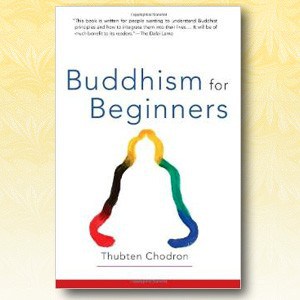Don’t trust me to fly a plane!
Part of a series of short Bodhisattva's Breakfast Corner talks on the topic of trust.
- People can bear different levels of trust
- We trust according to relationship and social roles
- A lot of disappointment when trust is broken is because we’ve trusted unwisely to begin with
- When we become attached to someone, we develop expectations that the other cannot possibly live up to
Don’t trust me to fly a plane (download)
There’s one little bit more that I wanted to mention about trust that I briefly mentioned yesterday, and some of you’ve heard before, but not on BBC. That is, that we have to think and decide for ourselves how much trust different people can bear, and in what areas of life they can bear our trust. I think part of our problems come because we give people more trust than they can bear, and then of course, when they can’t bear it, we get unhappy and angry and feel betrayed. Or we give them trust in areas that are not their strong points, and then again we get disillusioned and so on. Then sometimes we don’t give people enough trust in certain areas that they’re quite capable of in, but for one reason or another we don’t trust them. I think a lot of the disappointment and frustration we have when trust is broken, comes from appropriating trust in an unwise way to start with, one, and the fact that things change and nothing is firm and predictable. As much as we would like it to be firm and predictable, it’s not.
The example I give is, while we’re trying to create equanimity, equally for all sentient beings, we don’t act the same way towards different sentient beings. You don’t act the same way towards your mother as you would towards a stranger, because of different social roles. Similarly, in giving trust, we trust an adult in a different way than we trust a two-year-old. We trust somebody we know well in a different way than we trust somebody we don’t know well. All these different levels of trust are quite natural, and they’re necessary. For example, with a two-year-old, in terms of safety, you’re not going to give them a box of matches. That’s not a proper way to trust a two-year-old, but you could give an adult a box of matches—hopefully you can trust them. It’s just seeing, a two-year-old can’t bear that kind of trust, and an adult can.
Then there are different things that we want to trust different people with. Like I was saying the other day, if you’re flying in a plane, you trust the pilot. Of course, you’re trusting the people who certified the pilot and so on and so forth. Please don’t trust me to drive the plane. In this light, in different areas, we choose how much trust to give different people.
Attachment and expectations
Sometimes, when attachment gets in our way, we give somebody more trust than they can bear, because we build them up to be some kind of ideal, perfect person who never makes mistakes. Or if they make mistakes, the mistakes never concern us. Or some person who always in all circumstances says what they mean and always acts according to their word, and never changes their mind, and always communicates it perfectly if they do change their mind. So those are kind of high and tall expectations to put on people.
We often put those kinds of expectations when we trust other people, without giving any room for the fact that people aren’t perfect, that people often commit to things without examining them fully, or they commit to things having examined them fully, but find out there’s something more to it after they’ve committed, that they can’t do. Or they commit, and then something in their circumstance changes, and they can’t keep their commitment. Or they commit, and then their mind gets overwhelmed by afflictions. Or some other event happens in their life that takes them away from being able to fulfill what they said they were going to do. I think a lot of our problems come because we want everything to be nice and neat and orderly and predictable, and if someone’s going to make a mistake, tell us in advance that you’re going to make a mistake. Then we’ll expect it, we won’t be so disappointed when you do. How’s that going to happen? Do we tell other people in advance when we’re going to make a mistake? No. We just make our mistake. It’s the same thing with other people.
This whole thing of the confusion we have in how much trust to give people and what areas to give them trust, and the confusion we have in making expectations that don’t have any flexibility to them. I think this contributes to a lot of our disappointment and disillusion. Whereas if we have the expectation, “People are committing to this, but as they say, life happens.” Different things arise in that person’s life that take priority for a certain period of time, or they change. Imagine that! They change! Gee! We meditate on impermanence, but do you really think people are supposed to change? Somehow we’re missing joining our meditation to what life is about. People make mistakes, all sorts of stuff happens.
Reasonable expectations
When we form expectations, it should be, “Well, I expect this and this and this, BUT, this and this and that and that may also happen.” None of us know what’s going to happen until it happens. Give our minds some space, and in that way, have some space around what other people do. If we do, that makes us much more accepting, much more tolerant. Much better able, as they say, to go with the flow. When we hold things very rigidly, then so much disappointment, frustration and so on.
Determine trust according to the situation
Really take time to think beforehand about, to get to know a person well, and to think, what areas can I trust them in? What areas are they not learned in, or not skilled in? I can know, therefore I don’t give them as much trust. Not trusting somebody doesn’t mean they’re a bad person. Like I said, don’t trust me to fly you in an airplane! That doesn’t mean that you think I’m a bad person, because I can’t do that. I think you’re wise if you don’t do that. We determine things according to the situation, without creating “good” and “bad” on top of it.
Of course there are some areas where we really wish we could trust somebody, give somebody more trust than they are able to bear. We pressure them, “Come on! Become what I want you to be so I can trust you in that area! I want to trust you in that area!” The other person’s going, “Hey, I’m just me. I’m just trying to do what I can. I’m not ready to bear that yet.” Or sometimes, especially when we’re teenagers, we’re willing to bear all sorts of trust that we’re not ready to bear. Or sometimes, we are ready to bear trust, and our parents think we aren’t, and so then a lot of friction comes up. I think flexibility is a good slogan in this area.
Venerable Thubten Chodron
Venerable Chodron emphasizes the practical application of Buddha’s teachings in our daily lives and is especially skilled at explaining them in ways easily understood and practiced by Westerners. She is well known for her warm, humorous, and lucid teachings. She was ordained as a Buddhist nun in 1977 by Kyabje Ling Rinpoche in Dharamsala, India, and in 1986 she received bhikshuni (full) ordination in Taiwan. Read her full bio.


